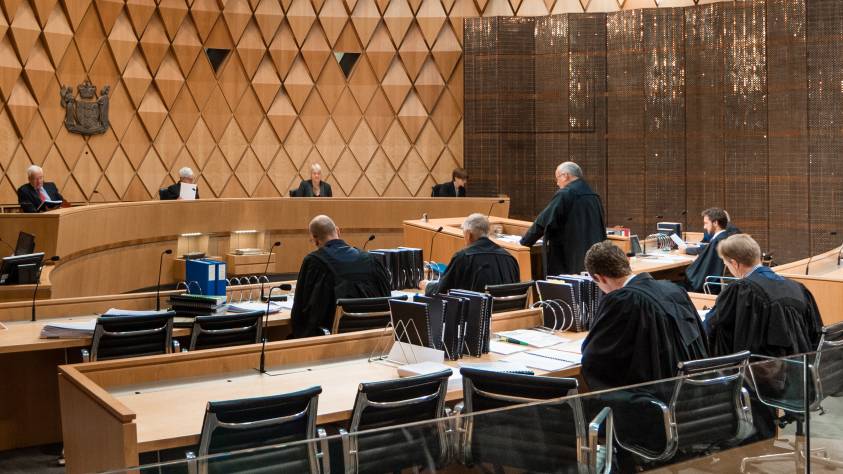The proposed changes are intended to improve the timeliness and quality of case-related materials available to the public and media with a view to improving transparency and promoting understanding of the Court’s work. Prior to introducing the changes, the Supreme Court judges would appreciate feedback. The possible changes are summarised below.
Transcripts
The Court considers the current approach – involving delay in uploading the transcripts to the courtsofnz.govt.nz website, for checking – is undesirable.
It is considering an approach where the transcript is uploaded within a few days of the hearing, with a banner recording that it is an unchecked transcript and may not therefore be completely accurate. (And if needed, a corrected version would subsequently be uploaded, with a note recording this had happened.)
Exceptions would apply in cases where non-publication or suppression orders are in place, and where a trial/retrial follows the appeal.
Audio recording
The Court is considering uploading the audio recording of the hearing, on a similar basis (at a later date, when the courts website has been upgraded).
Submissions
The Court considers that copies of parties’ written submissions (as well as chronologies and outlines of oral argument) should be uploaded to the courts website – submitters would be asked to ensure submissions are prepared with this in mind. In particular, submitters would be asked to ensure no suppressed information appears in the submissions.
The Court considers this would allow for a full record of the hearing to be available, rather than only a record of what is said at the hearing.
The Court sees benefits in uploading the submissions before the hearing, so that those attending the hearing or observing it by VMR can get a better understanding of the arguments being put to the court – but is asking for the profession’s views on the appropriateness of that.
Even if the submissions were uploaded after the hearing, those reporting on or interested in the case would be able to get a better understanding of the parties’ positions.
Livestreaming
Livestreaming of some or all Supreme Court appeal hearings is being investigated and may happen in the longer term when the relevant technology has been upgraded – using overseas models (in the UK and Canada) as a guide.
There would need to be a slight transmission delay to enable inadvertent references to suppressed material to be dealt with, and some criminal appeals could not be livestreamed (for fair trial reasons).
In the meantime, the Court’s current practice of permitting media, on application, to file and record hearings will continue.
The Court will also promote the use of video conferencing technologies to facilitate media and interested parties’ remote attendance at hearings – using protocols developed during the Covid-19 pandemic – and is interested to know if practitioners have any comments or concerns about this new practice.
Judgement delivery
The Court intends to use a new process for delivering judgments having high media interest, involving release of an embargoed advance copy to counsel and media who have agreed to abide by the embargo (and counsel are permitted to disclose the judgment to their clients during the embargo period, subject to the same restriction) – with the embargo ceasing as soon as the judgment has been delivered in open court. This will allow counsel to advise clients and to prepare for media inquiries following delivery of the judgment.
The Law Society’s committees are considering the proposals and practitioners are welcome to provide comments by emailing vicky.stanbridge@lawsociety.org.nz. Alternatively, practitioners can provide feedback directly to the Supreme Court by emailing supremecourt@justice.govt.nz.

